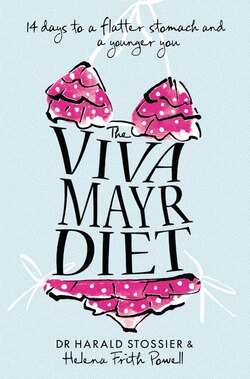Читать книгу The Viva Mayr Diet - Helena Frith Powell - Страница 46
Going organic
ОглавлениеThe reason for choosing organic food and drink is that humans take energy from food, energy that is produced by the sun. This energy was first measured by a man called Professor Fritz Popp (I promise you, that is his real name) and it is called a ‘biophoton’, from the Greek word meaning life and light. A tomato that has been exposed to plenty of sunshine has a lot more of the kind of energy we need than one that was forced in a greenhouse in winter. This is because a tomato that has been grown naturally will be full of antioxidants, which it has had to produce in order to protect it from the negative effects of the sun. These are the very same antioxidants that we can use to protect our bodies. In fact, there is some recent research that suggests that skin creams that contain antioxidants enhance the protection they give to our skin.
‘Take an orange, for example,’ says Dr Stossier. ‘It gets its nutrients from the soil; it grows and produces its fruit under the influence of sunlight and a natural environment. The life force, or ‘energy’ of a plant is contained within it, and when we eat that plant, we also take in its energy. This is measurable, and is known as a ‘bioprotein’. So, a bioprotein is, in fact, a measurement of a food’s vitality, or energy. And studies have found that organic food contains many more of these bioproteins than non-organic food. Organic food does give us much more vitality than other foods, so wherever possible you should buy organic.
It makes sense to eat food that is as natural as possible. Not only is it healthier, but it also mirrors our own natural state. Unfortunately, some production processes either prevent the food’s energy from being created (for example, if it has no access to natural sunlight) or destroy it (for example, by irradiating food to preserve it or cooking food in a microwave oven).’
There are a multitude of other reasons to eat organic, including supporting sustainable farming, ensuring we aren’t consuming unhealthy pesticides, herbicides, growth hormones, and other chemicals in our food, and avoiding GMOs (genetically modified organisms), which may contain little or no vitality at all.
Having said that, eating organic is not the most important aspect of the Viva Mayr philosophy, and if you don’t have access to organic food there are many things you can do to compensate. ‘Apart from the really obvious things like junk food and sweets with no nutritional value, there is nothing you have to avoid as long as you chew it properly,’ says Dr Stossier. ‘Food is not good or bad, food is food; it is neutral. It is always a question of what we can get out of the food, so we have to look at our eating habits. The quality of the food is not the most important thing, but if we can reduce the intake of industrially prepared foods then it’s a good thing.’
So I guess shortbread biscuits are out? Unless they are homemade? ‘They lack nutritional value,’ says Dr Stossier, smiling. All very well, but they have many other things going for them.
The Viva Mayr Diet is not about depriving yourself, but about eating the right thing at the right time and optimising your digestive capacity, which in turns leads to a healthier, slimmer, less-prone-to-ageing you. In fact, what you eat is not nearly as important as when you eat it. But do try to stick to the menu plans outlined on each day of the programme, or investigate some of the alternative recipes at the back of the book (see here). Enjoy experimenting with things you may never have tried before. A shift in your eating habits is the ultimate goal, and you’ll soon find you are feeling better than you ever have before.
